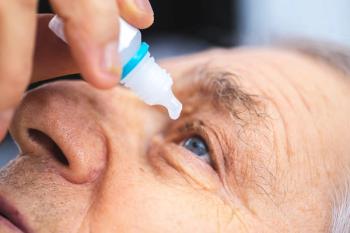
The American Optometric Association House of Delegates considers board certification
A drive is currently under way for board certification in optometry.
Key Points
More than 40 years and several project teams later, however, the AOA and other proponents of board certification see a renewed sense of urgency to pass a board certification model, especially as health-care delivery continues to change.
The debate will culminate at center stage during the AOA meeting in Washington, DC, where the House of Delegates will discuss and vote on the model for board certification proposed by the Joint Board Certification Project Team (JBCPT). The team, formed in 2007, consists of representatives of the AOA and five other optometric organizations.
Why the push for board certification now? So-called "value-driven health-care reform," as defined by the Department of Health and Human Services, emphasizes providing consumers with the information to choose health-care providers based on value. One measure of quality: demonstration of continued competence with board certification and maintenance of certification (MOC).
Three forces are behind this push: the government, third-party payers, and the public. The government and third-party payers believe that board certification can lead to better patient outcomes, which would help control health-care costs. Patients also use board certified status to evaluate quality of the provider and the quality of care they (or their family) will receive.
"In a nutshell, that's why we think we should do it," said David A. Cockrell, OD, FAAO, an AOA trustee and representative to the JBCPT.
In 1996, the Institute of Medicine of the National Academies launched an effort to assess and improve the quality of health care. The federal government picked up on this initiative as a way to control health-care costs and improve patient outcomes.
This, in turn, led to passage of the Physicians Quality Resource Initiative (PQRI), which provides financial incentives to physicians and other professionals who successfully report quality data related to covered services. On April 28, the Senate Finance Committee released a new policy paper outlining its reform agenda. The American Board of Medical Specialties (ABMS) convinced the committee to align board certification with PQRI.
Another initiative, Medical Home Demonstration, a research project of the Centers for Medicare and Medicaid Services (CMS), requires that MDs and DOs in the program be board certified.
What about optometry?
The American Board of Medical Specialties (ABMS) has 24 member boards that cover more than 145 medical specialties and subspecialties. Podiatrists, dentists, oral surgeons, and chiropractors have their own certifying bodies outside the ABMS.
Optometry, however, does not have a board certification model for the entire profession. Some optometrists worry that this can be used against optometry when seeking expanded scope of practice.
Also, private sector payers have expressed interest in using MOC programs as a measure of accountability. Without such a program, optometrists may eventually be excluded from or discriminated against in government and commercial health plans.
"[Board certification] is really not necessary right now. The question is: do we want to prepare for the future or catch up on the back end?" Dr. Cockrell said.
The CMS relies on professional groups to set their own measures for accountability and has indicated that it would like optometry to do the same.
"Public accountability for the value of services provided is a key tenet of any profession," said Tom Valuck, MD, JD, CMS Medical Officer and Senior Advisor to the Center for Medicare Management, in comments he submitted to the AOA. "Professionals, including health professionals, are generally expected to develop mechanisms for public accountability. For example, health professional groups have developed quality measures, board certification for initial competency, and maintenance of certification for continued competency to demonstrate their accountability for quality."
Is it necessary?
Those against board certification say it's unnecessary, will provide no real benefits, and will be too costly for practitioners.
"Board certification as defined in the medical model demonstrates expertise in a particular specialty of medical practice and represents advanced competency requiring residency-based specialty training," the Ohio Optometric Association said in a statement announcing its plans to reject the JBCPT model. "Completion of the doctor of optometry degree, national boards, and appropriate state licensure requirements should be recognized as the only necessary documentation for competence to practice optometry."
In a letter announcing the Indiana Optometric Association's plans to reject board certification, its president, Richard J. Schamerloh, OD, raised a similar argument. "[Board certification], as defined by the JBCPT, is not on par with the accredited and accepted models used by medicine," Dr. Schamerloh wrote. "While there are some similarities, it is critically different from [board certification] as understood by other members of the medical community, third-party payers, and informed members of the general public."
If the house approves the JBCPT model, the next step is to create the ABO and hire administrators, a process that could take 1 to 2 years. Once the board forms, doctors can begin amassing points so that they can begin their application.
Newsletter
Want more insights like this? Subscribe to Optometry Times and get clinical pearls and practice tips delivered straight to your inbox.









































